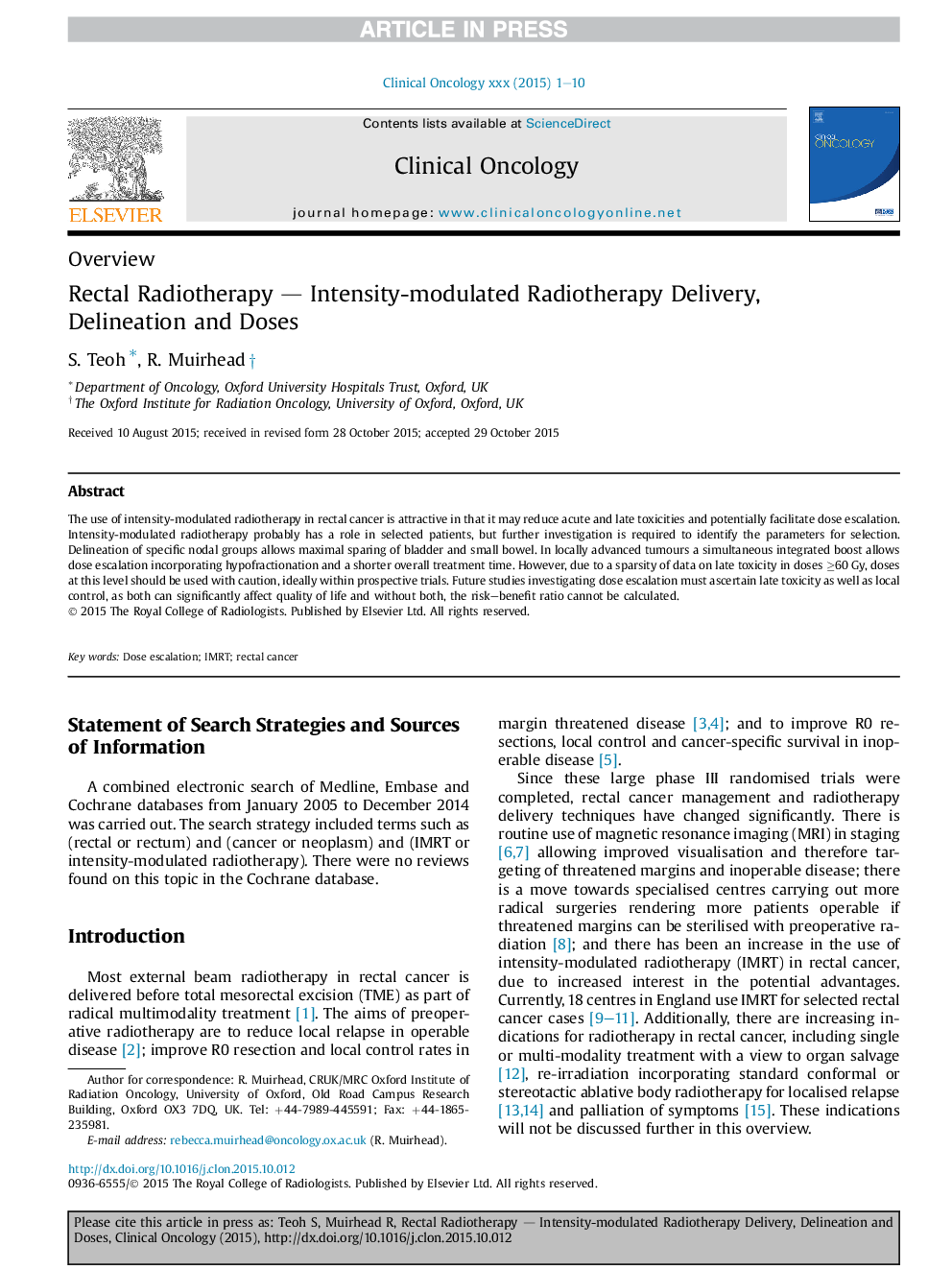| Article ID | Journal | Published Year | Pages | File Type |
|---|---|---|---|---|
| 5698381 | Clinical Oncology | 2016 | 10 Pages |
Abstract
The use of intensity-modulated radiotherapy in rectal cancer is attractive in that it may reduce acute and late toxicities and potentially facilitate dose escalation. Intensity-modulated radiotherapy probably has a role in selected patients, but further investigation is required to identify the parameters for selection. Delineation of specific nodal groups allows maximal sparing of bladder and small bowel. In locally advanced tumours a simultaneous integrated boost allows dose escalation incorporating hypofractionation and a shorter overall treatment time. However, due to a sparsity of data on late toxicity in doses â¥60 Gy, doses at this level should be used with caution, ideally within prospective trials. Future studies investigating dose escalation must ascertain late toxicity as well as local control, as both can significantly affect quality of life and without both, the risk-benefit ratio cannot be calculated.
Keywords
Related Topics
Health Sciences
Medicine and Dentistry
Oncology
Authors
S. Teoh, R. Muirhead,
